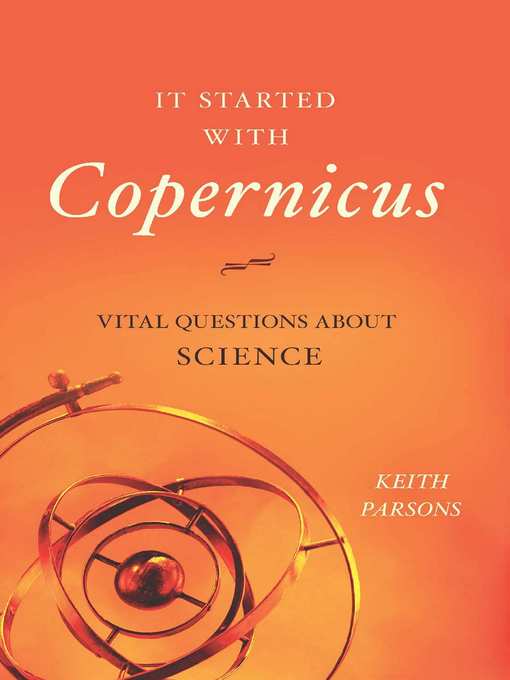
It Started with Copernicus
Vital Questions about Science
کتاب های مرتبط
- اطلاعات
- نقد و بررسی
- دیدگاه کاربران
نقد و بررسی

June 2, 2014
Parsons, professor of philosophy at the University of Houston–Clear Lake, presents “an expansion and revision” of his 2006 work, Copernican Questions: A Concise Invitation to the Philosophy of Science. Rather than offering a comprehensive overview of the philosophy of science, Parsons invited readers in his earlier work “ to jump into some of the biggest, deepest, and sometimes nastiest controversies that have roiled around the nature, authority, role, extent, and implications of natural science.” He has reworked older material in light of suggestions to remove the “sarcastic or dismissive tone” taken toward some of the writers critiqued, and he has added three chapters on the nature of scientific methodology, the need for a philosophy of science, and the role science plays in defining what it means to be human. The older material offers an engaging exposition of some basic topics; however, the text is fairly dated. The postmodern critique of science, for example, is no longer a burning issue, and creationism, while no more sophisticated than it was years ago, has moved well beyond the early formulation of intelligent design. Parsons cites only seven works produced in the last decade and none more recently than in 2011. Nonetheless, those looking for an introduction to the philosophy of science will find the book useful.

June 15, 2014
Parsons (philosophy, Univ. of Houston at Clear Lake; Rational Episodes; God and the Burden of Proof) sparks alternative perspectives in the dialog concerning science in society in this expanded and revised version of the 2006 original. This publication comes at a crucial time when the field has lost some of its luster and promise for general folks. The most newsworthy arguments have become polarized between science and religion, painting a false dichotomy of it being necessary to choose one or the other. Parsons approaches science as a philosopher, asking questions such as: Is science rational? What happens when humans are added to the mix of what is rational or what is true? This breaks the disagreement and forces readers to examine their own views. One of the most valuable aspects of the book is the author's review of the history of science, particularly in cases such as Copernicus's theory of heliocentricity, which challenged widely held beliefs and caused visceral, often unpleasant reactions. The parallels with modern debates are hard to ignore. VERDICT Overall, the philosophy of science may be a challenging and unfamiliar concept, but this book is a readable introduction to the topic.--Marianne Stowell Bracke, Purdue Univ. Lib., West Lafayette, IN
Copyright 2014 Library Journal, LLC Used with permission.

























دیدگاه کاربران